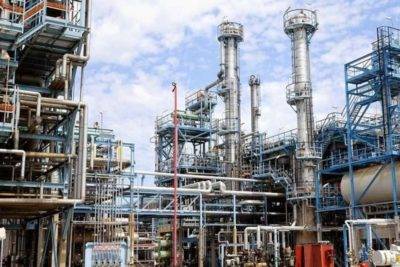The long-anticipated commencement of operations at the Port Harcourt refinery is slated for the end of July, as announced by Chief Ukadike Chinedu, the National Public Relations Officer of the Independent Marketers Association of Nigeria (IPMAN). This development follows numerous delays that have stalled the refinery’s operations, which boast a significant capacity of 210,000 barrels per day.
Chief Ukadike highlighted the economic benefits of the refinery’s activation, emphasizing its potential to invigorate economic activities, lower petroleum product prices, and ensure a stable supply of refined products across Nigeria. This announcement brings renewed hope to the industry, promising a robust boost to the national economy through enhanced petroleum output and reduced dependence on imports.
Extensive Overhaul and Renewed Promises
The journey towards the refinery’s operational status has been extensive and challenging. The Port Harcourt refinery, which consists of two units with capacities of 60,000 barrels per day for the old plant and 150,000 barrels per day for the new plant, underwent a shutdown in March 2019 for the first phase of repair works. The government enlisted Italy’s Maire Tecnimont as a technical advisor, with oil major Eni also playing a pivotal role.
In December, the Minister of State for Petroleum Resources, Heineken Lokpobiri, announced the mechanical completion of the refinery and its flare start-off. This was further confirmed by the Group Chief Executive Officer of NNPC Limited, Mele Kyari, in March 2024, who assured that the refinery would begin operations within two weeks. Despite these assurances, the refinery remained inactive, prompting skepticism among stakeholders and the public.
IPMAN’s Confidence and Industry Competition
. In a recent exclusive interview, Chief Ukadike expressed confidence that the July deadline would be met, citing significant progress and extensive work done at the refinery. He described the overhaul as a complete transformation, with new armoured cables and updated machinery, making the refinery almost brand new. “The turnaround maintenance is massive, and the job is being done day and night,” he noted, assuring that the refinery is 99 percent ready.
This new timeline coincides with the Dangote Refinery’s plans to commence petrol production by the end of June. Aliko Dangote, Chairman of the Dangote Group, recently assured that their refinery would significantly reduce Nigeria’s reliance on imported petrol. The competitive landscape created by the concurrent operations of both refineries is expected to drive down petrol prices and enhance supply stability. With Nigeria’s average monthly consumption at 1 billion liters, the operational refineries could save the government approximately N6.2 trillion annually, currently spent on petrol imports.
The projected start of the Port Harcourt refinery by July and the Dangote Refinery’s operations by June mark a transformative period for Nigeria’s petroleum industry. These developments promise to stabilize the fuel market, promote economic growth, and position Nigeria as a significant player in the global petroleum sector.
Rehabilitation of Port Harcourt Refinery: A Catalyst for Economic Revival
The rehabilitation of the Port Harcourt Refinery is a significant step towards alleviating the perennial fuel scarcity challenges faced by Nigeria. Once operational, the refinery will increase the country’s local refining capacity, ensuring an adequate supply of refined petroleum products across the nation. This will not only address the recurring fuel shortages but also create opportunities for value addition, job creation, technology transfer, and skills development within the oil and gas industry.
Furthermore, the refinery’s revival will contribute to Nigeria’s energy security and diversification agenda. By reducing the nation’s reliance on imported refined products, the refinery will support the country’s commitment to reducing greenhouse gas emissions and promoting sustainable energy practices.
Economic Benefits and Investment Attraction
The rehabilitation of the Port Harcourt Refinery holds significant economic benefits for Nigeria. By reducing the need for fuel imports, the country will save valuable foreign exchange, thereby improving its balance of payments position. Additionally, the refinery’s operations will lower the cost of fuel subsidy, freeing up funds for other developmental projects and social services.
Moreover, the revitalized refinery will enhance the competitiveness and profitability of NNPC Limited and its subsidiaries, making the Nigerian oil and gas industry more attractive for private sector investment. This influx of investment will further stimulate economic growth and create employment opportunities in the downstream sector.
As the rehabilitation of the Port Harcourt Refinery progresses, it is expected to catalyze a positive ripple effect across various sectors of the Nigerian economy, positioning the nation for sustained growth and development.
Table of Contents
Discover more from OGM News NG
Subscribe to get the latest posts sent to your email.














